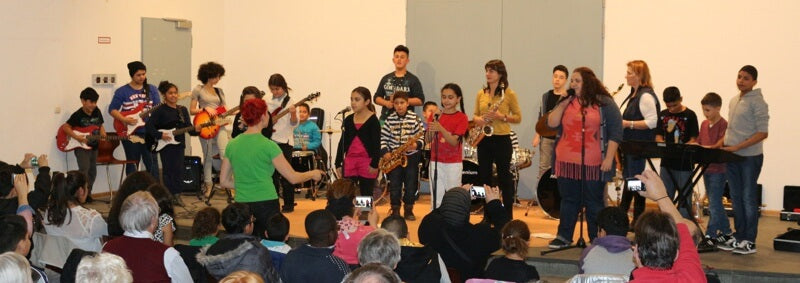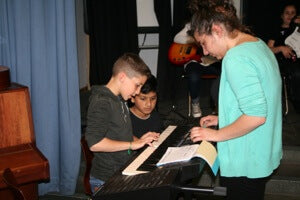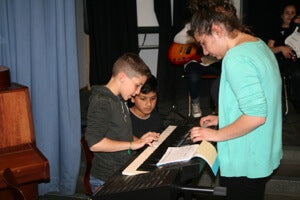Day 16
20 minutes of big band music lessons for a child in Berlin-Neukölln
 Beats for Kids
Beats for Kids


Lack of education, racism and violence in the socially disadvantaged Rollbergviertel in Berlin-Neukölln

need
Strengthen personal responsibility and self-confidence, promote communication and reduce prejudices.
activity
Founding of a big band for children and young people with no previous musical knowledge, weekly rehearsals and regular performances.
Measurable performance
Number of children and young people who were able to participate in the orchestra
Result
Number of children who play an orchestral instrument
Systemically relevant impact
New encounters and friendships are formed, prejudices are broken down and a better coexistence in the neighbourhood is achieved.
background


The good deed
AboutGermany
Berlin
Capital city
80781000
Population
45,084.87 USD
Gross domestic product
per capita per year

5
Human Development Index
(Human Development Index)

